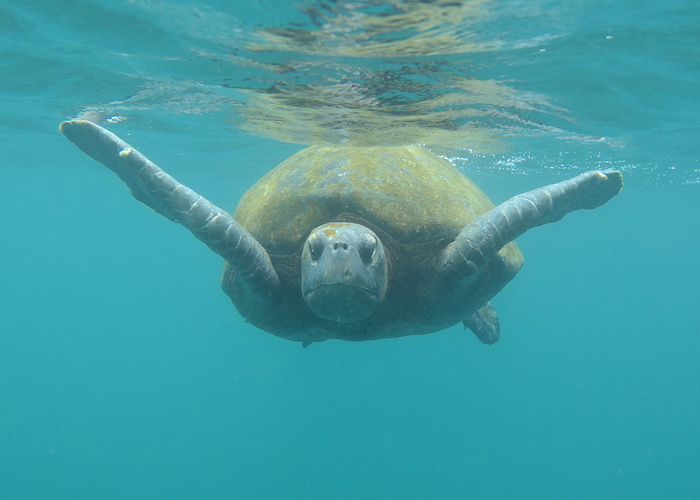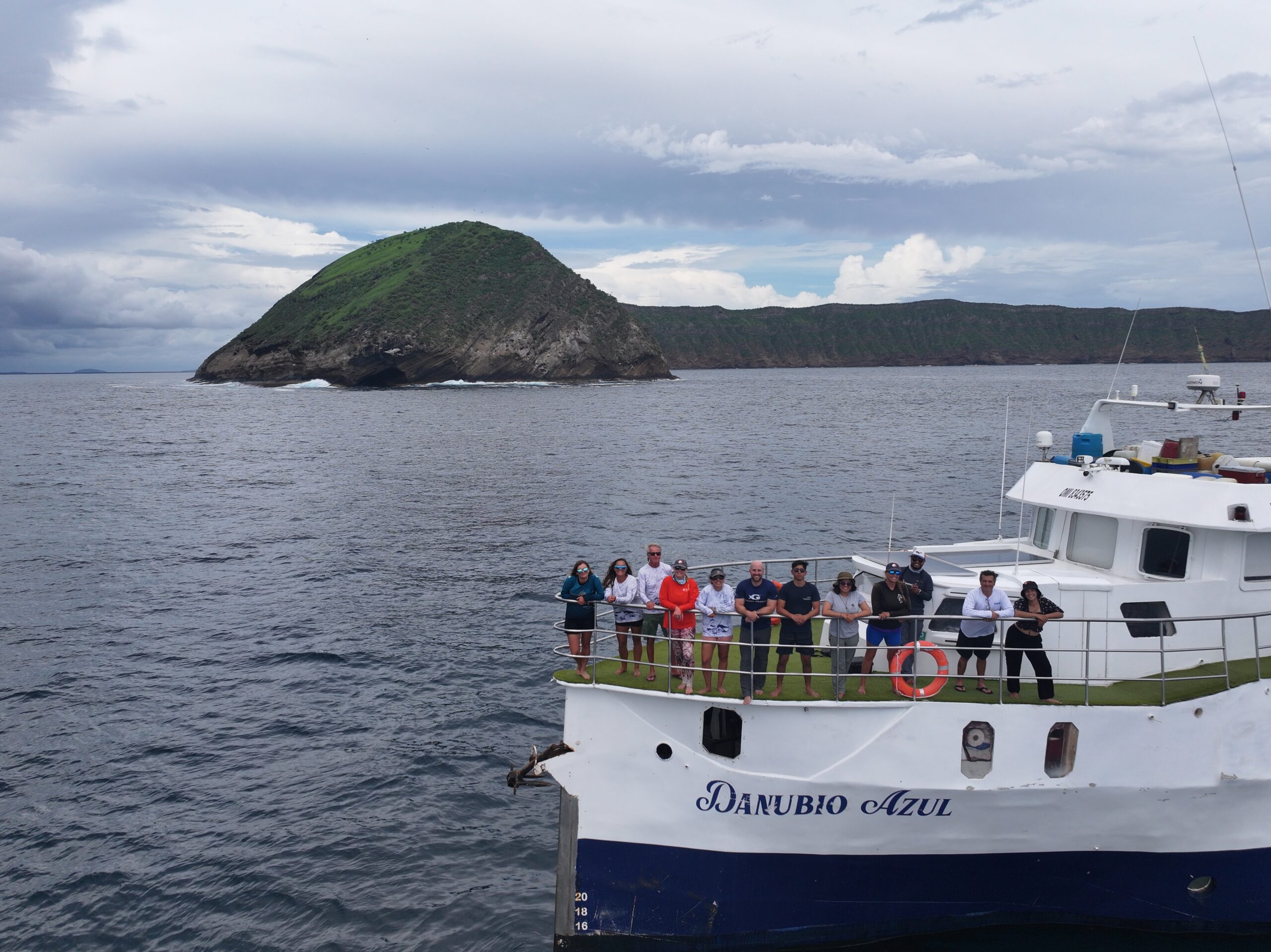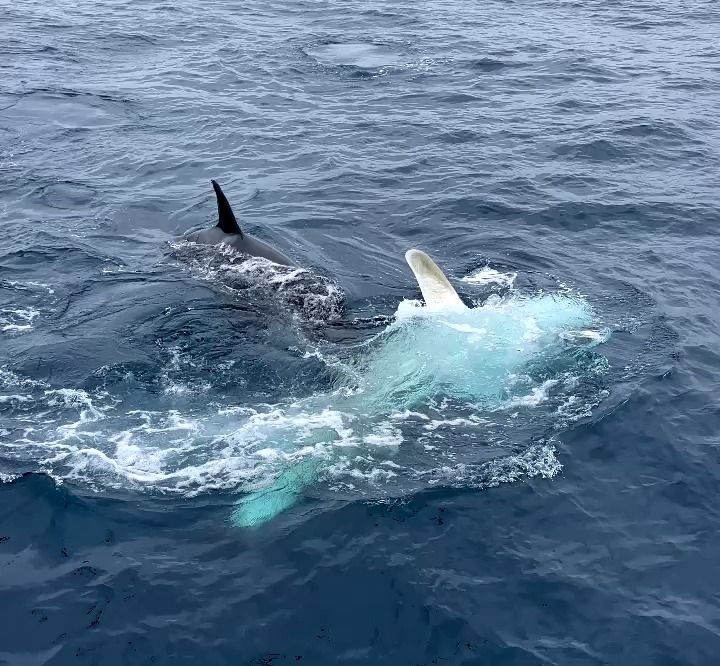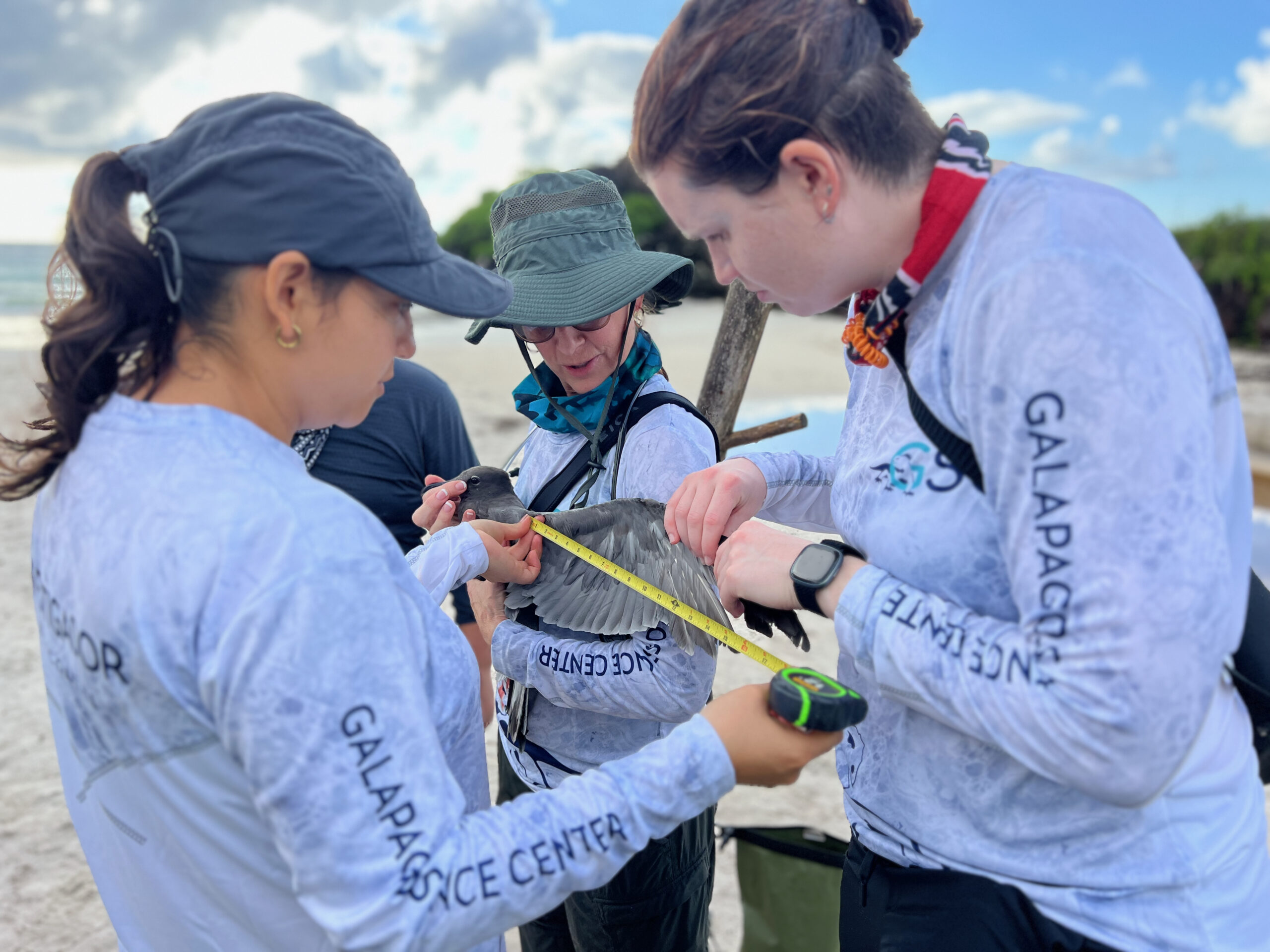Los días 4 y 5 de diciembre 2018 cuatro investigadores de Galápagos presentaron en el Simposio de Tortugas Marinas – Ecuador 2018 en la ciudad de Santa Elena; este simposio fue organizado por el Ministerio del Ambiente a través de la Subsecretaría de Gestión Marina y Costera en conjunto con la Convención Interamericana para la Protección y Conservación de las Tortugas Marinas (CIT) con el soporte de Conservación Internacional , WildAid , La Universidad de la Península de Santa Elena, Global Environmental Fund (GEF), Parque Nacional Galápagos entre otros.
Juan Pablo Muñoz-Pérez es candidato a Doctor en Ciencias Marinas de la Universidad de Sunshine Coast, Australia y tiene una Maestría en Ciencias Marinas de James Cook University, Australia. Actualmente se desempeña como Coordinador de Ciencia de Galapagos Science Center y Profesor-Investigador Asociado a la USFQ. Es co-fundador del Programa de Tortugas Marinas de Equilibrio Azul (www.equilibrioazul.org) y del Programa de Investigación y Conservación en Tortugas Marinas del GSC “Tortuga Negra Galápagos.”
Daniela Alarcón-Ruales tiene su Maestría en Ciencias Marinas Ciencias Marinas de James Cook University, Australia. Actualmente se desempeña como Co-Responsable del Laboratorio de Ecología Marina de GSC y también ayudó a fundar el Programa “Tortuga Negra Galápagos” de GSC.
Jason Castañeda tiene su Licenciatura en Gestión Ambiental de la USFQ Extensión Galápagos y actualmente se desempeña como Guardaparque en la Dirección de Parque Nacional Galápagos.
Ha sido fundamental en el desarrollo del Programa “Tortuga Negra Galápagos” de GSC. Silvia Rebeca Zavala Montoya: Candidata a Master en Ciencias Ambientales & Minor en Probabilidad y Estadística Aplicada, Universidad de Zurich, BSc en Biología Marina y Agua Dulce de la Universidad de Glasgow en Escocia, Reino Unido.
Co-fundador del Programa de Tortugas Marinas de Equilibrio Azul www.equilibrioazul.org; del Programa de investigación y conservación en Tortuga Marinas del GSC “TortugaNegra-Galápagos”, del programa GSC de investigación en desechos marinos y del Simposio Anual de Investigación y Conservación en Galápagos DPNG-GSC
Ponencias:
- BIOLOGÍA ACUÁTICA DE LA TORTUGA VERDE (CHELONIA MYDAS) EN GALÁPAGOS (Daniela Alarcón-Ruales, MSc). ESTIMACIÓN DE LA PROPORCIÓN DE SEXOS DE LA TORTUGA VERDE (CHELONIA MYDAS) EN ÁREAS DE ALIMENTACIÓN EN LAS ISLAS GALÁPAGOS (Silvia Zavala Montoya, BSc).
- LAS TORTUGAS CAREY (ERETMOCHELYS IMBRICATA) EN GALAìPAGOS (Juan Pablo Muñoz-Pérez, MSc). ECOLOGÍA ESPACIAL Y VIDEO CIENTÍFICO (EEVC) COMO HERRAMIENTA PARA EL ESTUDIO DE TORTUGAS MARINAS EN LAS ISLAS GALÁPAGOS Y EL USO DE INDIVIDUOS PARA LA EXPLORACIÓN DE LOS AMBIENTES EN LOS CUALES HABITAN ( Jason G. Castañeda).
- IMPACTOS PRELIMINARES DE LA CONTAMINACION POR PLAìSTICO EN LAS TORTUGAS MARINAS DE GALAìPAGOS (Juan Pablo Muñoz-Pérez, MSc).
Posters:
- PREDACION DE TORTUGAS MARINAS ADULTAS POR ORCAS EN GALAìPAGOS (Daniela Alarcón-Ruales, MSc).
- TORTUGAS MARINAS Y EMBARCACIONES EN GALAìPAGOS RECOMENDACIONES PARA UN PLAN DE MANEJO DE TRAìNSITO DE EMBARCACIONES EN GALAìPAGOS. (Daniela Alarcón-Ruales, MSc)
- MOVIMIENTOS A LARGA DISTANCIA DE LAS TORTUGAS CAREY (Eretmochelys imbricata) EN GALÁPAGOS (Juan Pablo Muñoz-Pérez, MSc).






